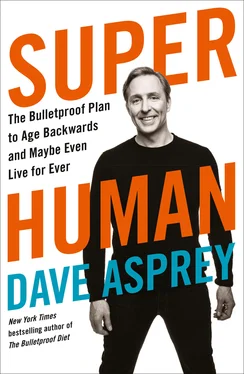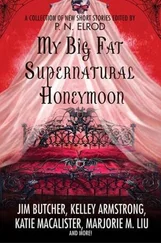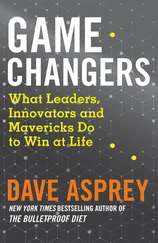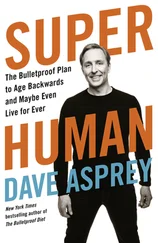Thog was skeptical. He knew fire was dangerous. When lightning struck a tree, the resulting wildfire could burn forests, not to mention humans who were dumb enough to get too close. He and all the other cave dwellers had survived winter (for the most part) without fire. They huddled together and shared their food, and everyone got along. Fire might be harder to share. What if only some cavemen had access to its warmth? “No thanks,” Thog grunted. “I’m good.” And he shivered his way back to his cold, dark cave.
One of those guys is our ancestor. And—spoiler alert—it’s not Thog.
Fire was one of the first tools humans discovered to help extend our life-spans, and we’ve been searching for new and increasingly complicated tools ever since. We have a hardwired instinct to avoid death that predates written language and even our ability to stand upright. Our awareness of our own mortality has led us to innovate throughout millennia to avoid dying, which of course means living longer. It is the fundamental drive of the human race, it is what has allowed us to evolve as a species, and we are nowhere near done.
Fast-forward from our caveman ancestor to the beginnings of recorded history, and we find proof that humans have been seeking immortality since we started writing things down. About 2,400 years ago, the pharaohs of Egypt in Alexandria devoted an enormous amount of their wealth and power to a quest for “eternal life.” In China, Taoist philosophers placed a tremendous amount of value on longevity. To achieve it, they focused on internal alchemy (visualizations, nutrition, meditation, self-control, and even sexual exercises) and external alchemy (breathing techniques, physical exercises, yoga, medical skills, and producing an “elixir of immortality” using various purified metals and complex compounds). In India, the theme of prolonged life emerged in Ayurvedic texts as rasayana, the science of lengthening life-span.
You could say to yourself, “Great, a couple thousand years ago, some crazy people wanted to live a long time. They’re dead now.” Except … these life-extending self-proclaimed alchemists are part of a lineage of biohackers that includes some of the most influential forefathers of modern science and medicine, such as Isaac Newton, Francis Bacon, Paracelsus, Tycho Brahe, and Robert Boyle. (Unfortunately, most female alchemists are not well known because they were accused of practicing witchcraft and killed.) The quest to live longer drove the scientific revolution, and it’s reasonable to say that the technology you rely on today would not exist without our core drive to live longer.
Along the way, charlatans and con artists took advantage of the burgeoning market of life-span extension by selling people on the idea of turning lead into gold. Soon alchemy itself was redefined as “false magic.” Today it conjures images of wizards in pointy hats. But the reality is that early alchemists were seeking something most of us would gladly trade our gold for: immortality. Humans have literally been working on transmuting our species from mortal to immortal for thousands of years. I’m one of them, and this book is about what it’s been like to work on extending my own life for the past twenty years.
The game has changed now that we have access to more knowledge and data than ever before. Not dying is still the number one motivator for all humans, and it isn’t because we choose it. This desire is baked into us at the subcellular level to the point that avoiding death is automatic. As I was researching my last science book, Head Strong , it became clear that our innate drive to avoid death comes from deeper within us than you might expect.
Your mitochondria, the power plants in your cells that evolved from ancient bacteria, have the same basic goal of any successful life-form—to stay alive. The human body has at least a quadrillion mitochondria scurrying around inside it, each one of them running a program that says, “Don’t die.” Is it any wonder, then, that you don’t want to die? Those ancient bacteria drive you to focus on behaviors that will keep your meat alive and able to reproduce. I call these behaviors the three Fs: fear (fight off or flee from things that might kill you), feed (eat everything in sight so you have energy to fight off or flee from things that might kill you), and the other f-word that propagates the species. You spend a lot of time on these three priorities, don’t you?
All life-forms—from bacteria to fruit flies to tigers—share the same basic instincts, but we’re the only ones with big enough brains to also make long-term decisions to support our goal of not dying. Ironically, we are often distracted from making good long-term decisions for our longevity by the very instincts that are meant to keep us alive. For example, our desire not to die from starvation leads us to consume too much sugar for a quick boost of energy. This keeps us alive in the short term and increases our chance of dying in the long term. To have a perfectly functioning body and mind long past the age when you can no longer reproduce (at which point you essentially become useless to your mitochondria), you must build practices that prevent you from falling prey to those base instincts that make you a short-term thinker.
So if we’ve been seeking immortality for centuries and this drive comes from deep within our biology, why do people laugh when they hear I’m planning to live to at least a hundred and eighty? Some people stop laughing when they see I’m dead serious (no pun intended), but many act like Thog, shivering their way back to their dank caves.
We’ve already seen that it’s possible to live to a hundred and twenty. The longest verified living person made it to a hundred and twenty-two, and there are scattered but unverified reports of a hundred and forty. Over the last twenty years, the rules in the anti-aging field have clearly changed. If you make good daily decisions that benefit longevity and pair those choices with new technologies that can prevent and reverse disease and aging, it is becoming possible to add at least 50 percent to the age of the longest-lived human. Hence, living to a hundred and eighty is a realistic and achievable goal, at least if you’re willing to do the work along the way to get there. The good news is that even if I’m wrong, I’ll get to enjoy however many years I do have a whole lot more thanks to these practices. If in the end they only help me avoid Alzheimer’s or buy me an extra year with the people I care about, it’s still a win in my book.
These daily decisions and interventions are investments in my future, but they also power my performance right now. Each has its own return on investment (ROI). Some, like eating the right foods and getting quality sleep, may provide a longevity return of 3 percent, along with a better brain right now. Others, like fixing my jaw alignment or strategically using lasers on my brain, might yield closer to a 6 percent return on longevity. Some of the most radical, such as consuming oil containing an unusually shaped carbon molecule that helped rats in a lab live 90 percent longer than expected, may have incredibly high returns … if they work at all and don’t cause unintended harm if they fail. Today it is difficult to calculate exactly what longevity return you might receive on a specific intervention, but we do know the ROI comes in the form of more energy now and years of better health later . These are not just any years, but quality years filled with energy and mobility and brainpower, plus the wisdom that comes with living well for so long.
This type of energetic, productive old age is difficult to imagine, which is why many people shudder at the thought of living to a hundred and eighty. When I interviewed Maria Shriver on my podcast, Bulletproof Radio , her response to my mission was “I don’t want to live to a hundred and eighty. You can have that!” Most of us so badly want to avoid the picture we have of old age—suffering from chronic pain, becoming house- or wheelchair-bound, helplessly relying on care from others, forgetting our loved ones’ names—that we would rather die. Me too. But it doesn’t have to be that way, and I’ve been blessed to interview and befriend a great number of Super Humans who are not only thriving, but also happily giving back to society in their seventies, eighties, and even nineties.
Читать дальше






